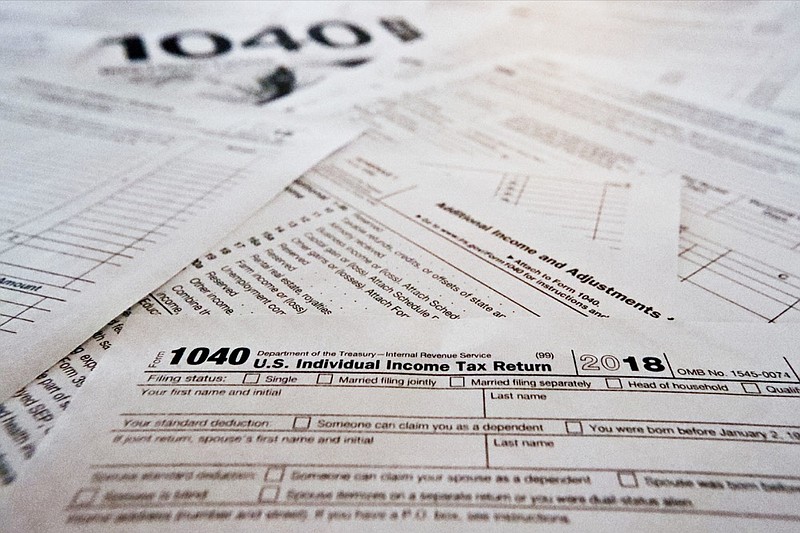Q. Taxpayers have been advised to file their taxes close to the April 15 due date this year. Has there been benefit to this advice and what advice may BBB offer for filing our taxes?
A. Tax season is in full swing. Tax identity theft reached near crisis levels in 2015. In an effort to fight identity theft, the IRS has partnered with state revenue departments, national tax professional groups, and software preparation companies to detect suspect tax returns. The good news is that tax fraud has decrease each year since.
Many people get help filing their taxes, either from computer software or a professional tax preparer. But horror stories about tax service rip offs and scams have some consumers concerned about who they can trust with their financial data and private information.
BBB advises taxpayers to always be cautious when choosing a tax preparer, since that person or company will have access to your personally identifiable information (PII). Tax Collection was the scam with the second highest search rate in 2018.
A paid tax return preparer is primarily responsible for the overall, substantive accuracy of your tax return(s). If there is a problem with your return or you are audited by the Internal Revenue Service (IRS), the tax preparer can help you address the issue and can often represent you. The preparer is required to sign your tax forms (paper or electronic) and provide their preparer tax identification number (PTIN), a number assigned by the IRS.
Choosing a tax preparer requires time, research and a high level of trust. BBB recommends the following tips for taxpayers interested in utilizing a tax preparer:
Ask for Referrals. To find a tax preparer, start by asking friends and family for recommendations. Search for all companies on bbb.org to see their rating, complaints and customer reviews.
Confirm they are registered properly. A tax preparer must obtain a PTIN from the IRS. You can verify your tax preparer's status by emailing epp@irs.gov and including their name, address and PTIN if available. Never let someone work on your taxes unless they have this number. Don't be afraid to ask about this or other qualifications; a capable professional does not mind questions.
The IRS will not call you directly. If you do get a call about your taxes, verify if it is coming from one of four BBB Accredited private debt collectors groups that the IRS uses to contact individuals who owe money to them. These groups are CBE Group, ConServe, Performant and Pioneer. If they are not part of these four organizations, hang up.
Look for credentials. Anyone with a PTIN can prepare your tax forms for you, but some tax preparers have more training and qualifications than others. Enrolled agents, certified public accountants (CPAs) and attorneys have unlimited rights to represent their clients to the IRS on all matters. Other preparers can help you with forms and simple IRS matters, but are limited otherwise, and they can't help you if they didn't prepare your form. Learn more about tax preparer credentials on the IRS website, www.irs.gov .
Be cautious with email. Be on guard if you receive unsolicited emails from a person or a company. Remember that scammers can make emails look like they are from a legitimate business, government agency, or reputable organization (even BBB!). Never click on links or open attachments in unsolicited emails. You may unknowingly download malware onto your computer that allows the scammer to access your personal information.
Watch out for big promises. Be wary of any tax preparation service that promises larger refunds than the competition, and avoid tax preparers who base their fee on a percentage of your refund. Also be wary of "refund anticipation loans," which can take a hefty chunk of your refund in commission. Refunds are processed quickly these days, so paying a premium price to receive them earlier may not be worth it.
Learn about free tax programs. There are several free government programs that prepare taxes free of charge if you meet an income requirement; go to the IRS's Free File page at www.irs.gov page for more information.
Use your best judgment when sharing personal information. Sensitive personal information includes your banking and credit card information, your birthdate, your address, your phone number, and your Social Security/Social Insurance number.
Look into Tax Software and Apps. If you plan to file your taxes yourself, use tax software or an app that provides both excellent data security and good customer service. Some of the top names in tax prep software are BBB Accredited Businesses, so check with bbb.org first.
Consumers can visit www.bbb.org for BBB's tax resource center to find additional information on finding a tax preparer, how to avoid popular tax scams and more.
Jim Winsett is president of the Better Business Bureau in Chattanooga

